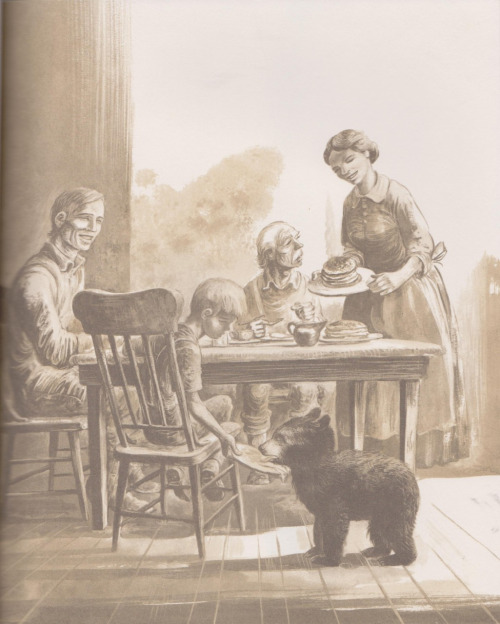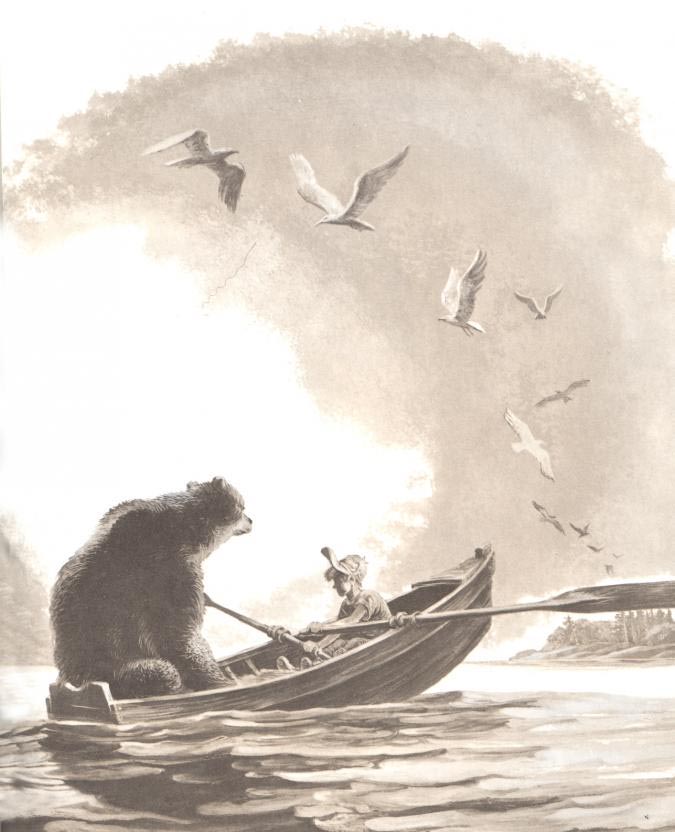Johnny is humiliated. His family doesn't have a bear skin drying on the side of the farm like the other farms. His father and his grandfather don't go shooting bears like other farms. Johnny is determined to shoot a bear and bring home the biggest bearskin in the valley. When he sets out to the woods to do so he meets a little bear cub that loves maple sugar. So he does come home with a bear after all. But what do you do when your little bear cub becomes a trial and a tribulation to the whole valley?


It's unlikely that The Biggest Bear would be written today, much less win the Caldecott medal. Even in a growing market for "shocking" picture books (see, for example, This is Not My Hat) this is the type of "shocking" that is also Politically Incorrect.
First of all, bears in this community are frequently killed and their skins displayed as trophies. And though Johnny has compassion on his bear, he is required to eventually take it into the woods to be killed (a child leading a large bear into the woods by himself with a shotgun over his shoulder would give most modern parents a heart attack.) Of course Johnny does not have to kill the bear but is saved by a group of men from a circus who trap Johnny's bear. It's taken to the zoo. Not even a nice zoo, but a little cage.
Sad, right? Yet in the culture where Johnny lives, bears are a big deal. They aren't nice fuzzy harmless friends. They are predators or nuisances and killing one is in some sense doing good for the community.
Of course, the "trophyism" of the neighboring farms has gone too far. That's proved by the terrified looks on the faces of the three bears that a neighbor shoots one morning as "they came heading for the tall timber." In this case it is about having "the biggest bear," and Johnny brings home a bear that becomes the biggest through love and friendship.
In reality, the final solution of the book is the kindest. It's the only way for the bear to live and not be a menace to the community (which it is). Johnny doesn't kill for vanity or pride. He learns the hard struggle between compassion and responsibility, and is rewarded for being soft-hearted and kind. Take off your modern filters, if you must, but don't let yourself be offended by this complex, funny, well-written, and gently illustrated picture book.
Review by Lauren Shearer
Lauren Shearer writes words for fun and profit. She also makes films, but everyone knows you can't make a profit doing that. Her other hobby is consistently volunteering way too much of her time. You can read more of her reviews
here.
Did you find this review helpful?